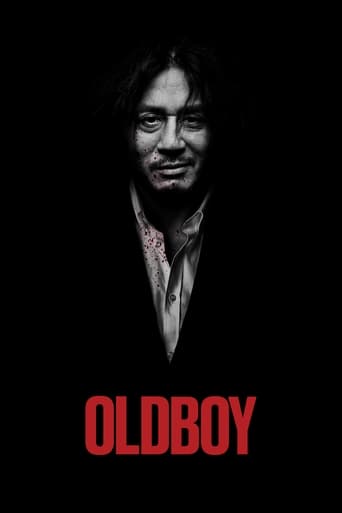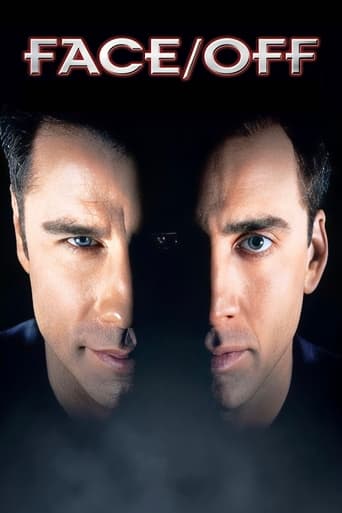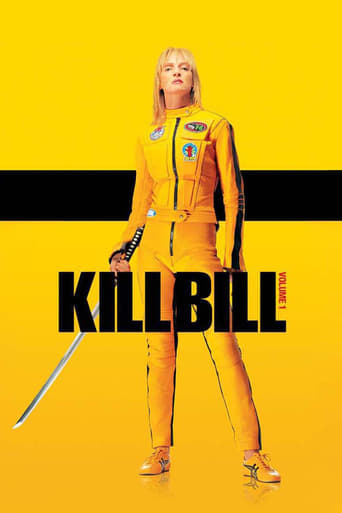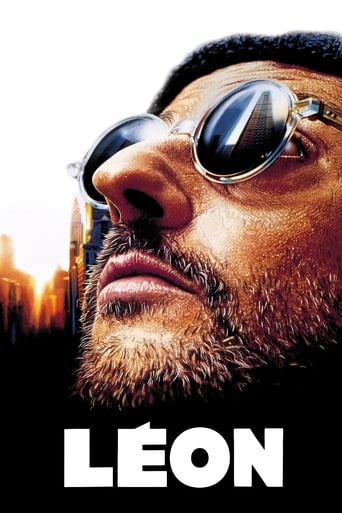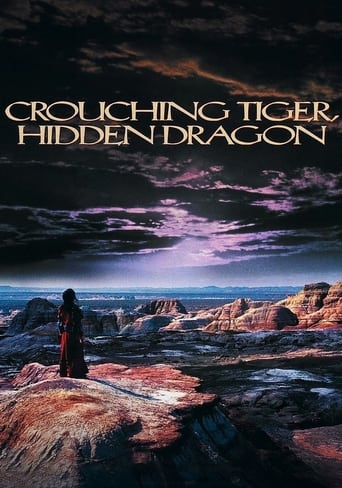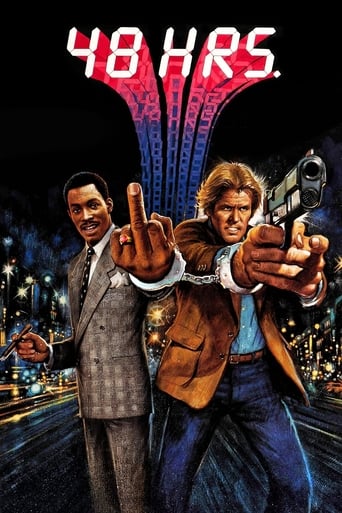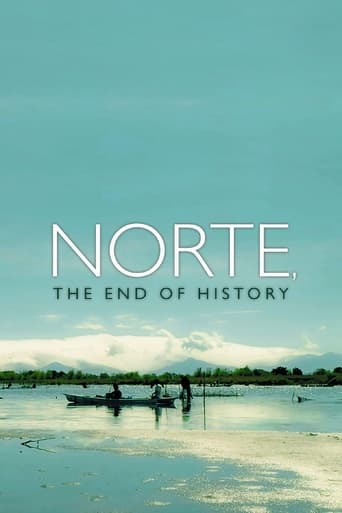
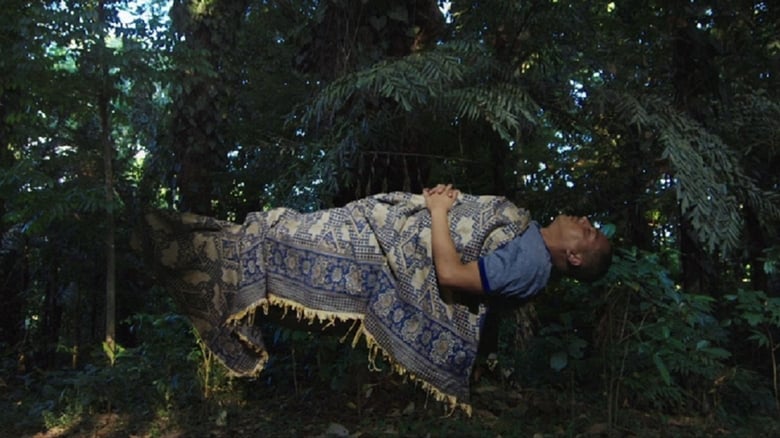
Norte, The End of History (2013)
A man is wrongly jailed for murder while the real killer roams free. The murderer is an intellectual frustrated with his country’s never-ending cycle of betrayal and apathy. The convict is a simple man who finds life in prison more tolerable, when something mysterious and strange starts happening to him.
Watch Trailer
Cast


Similar titles
Reviews
the audience applauded
The film makes a home in your brain and the only cure is to see it again.
There's no way I can possibly love it entirely but I just think its ridiculously bad, but enjoyable at the same time.
what a terribly boring film. I'm sorry but this is absolutely not deserving of best picture and will be forgotten quickly. Entertaining and engaging cinema? No. Nothing performances with flat faces and mistaking silence for subtlety.
Lav Diaz is famous (or infamous) for long runtimes. This one isn't too long (for Diaz's standards) but it is quite long and stretchy. If it was cut down to say, a 3-hour runtime, the story would still be effectively told. Nonetheless, the film still managed to hold my attention. Throw me a movie with a countryside view, a laid-back province environment, a village by the sea, and a green scenery, and I will surely glue my eyes on it.The movie revolves around the lives of 3 central characters, played by versatile and veteran supporting casts. These central characters I'm referring to are 1) Fabian- a genius turned lunatic 2) Joaquin- a family man indicted for a crime he never committed and 3) Elisa- the perfect example of a strong woman. It's so hard to choose which of the three characters most affected us, or who most most realistically depicts how sad and cruel society is. Their lives are so colorful that in the turn of events, one can only ponder on how cruel can fate be. I would give a special shout out to Sid Lucero, who plays Fabian in the movie. Fabian is an interesting character. He was a former law student whose intellect could have made him bar topnotcher. He likes talking about philosophy, conspiracies, politics, history--smart man. But I guess what he had in intellect, he lacked in rational thinking. He ran out of his mind because he was probably eaten by guilt. He was someone who can't control his emotions. And this led him to do crazy things. And this, ladies and gentleman, was very well acted by no less than Sid Lucero. I can't even think of someone else doing the role than him. Then again, Sid Lucero has already proved his versatility and craftsmanship that it's no longer a question.At first I didn't know what's the relation between Norte and the movie. I found out later on that the film was shot in the northern most part of the island of Luzon in the Philippines. Thus, the "North". As to the "end of history" part, well, it could be both literal and metaphorical. The movie has serious and deep themes which spices up the whole movie. There's murder, poverty, guilt, judgement, incest, hope, faith, longing, remorse...name it. All of these are depicted in the three lives connected to each other by fate. The no. 1 strength this movie has to offer is the brilliant performances from the actors. They brought the whole story, which is already great by itself, even greater.
Lav Diaz's 'Norte, The End of History' is set in the northwest region of the Philippines. This drama is split between the lives of two men, Fabian (Sid Lucerio) and Joaquin (Archie Alemania), whose lives intertwine unexpectedly.Fabian is a smug, self-absorbed man of privilege in his early thirties, a once gifted law student who dropped out for reasons unknown. He spends his time annoying his friends with his ill-conceived lectures on the defining theories of humanity. Joaquin is a poor man, who has a wife Eliza (Angeli Bayani) and two children. A serious leg injury wipes out their hard-earned savings.Loosely based on Dostoyevsky's 'Crime and Punishment', these two men have one thing in common, both are in serious arrears to local money lender Magda (Mae Paner). Both men take matters into their own hands, with differing consequences. Fabian flees, Joaquin is sent to prison. Over the next four years, Joaquin tries to make the best of a horrible situation, whilst Eliza struggles to provide for her children. Fabian is consumed by guilt, driven to the point of madness.Diaz looks at how the people of the Philippines have coped with their changing economical circumstances, people who have grown up in a dysfunctional country where they are encouraged to work outside of the country to make more money. Fabian rages against the memory of his parents being absent, and of being brought up by his maid. Joaquin and Eliza wanted to avoid this, they didn't want their children to be without their parents, however poor this would make them. Its a balancing act we all face, we gain one at the expense of another. Which is more important?Diaz is renowned for extremely long films, some for over 6 hours, 'Norte, The End of History' is only 250 minutes long! He favours long takes and slow tracking shots, illustrating the slow and monotonous rhythms of life. Its beautifully filmed, interspersed with some superb drama from an excellent cast are huge swathes of emptiness, especially in the second and third hour. The final hour is cruel and deeply disturbing, but the overall impact of these tragic moments of devastation are weakened by the preceding stretches of nothing.'Norte, The End of History' is an ambitious film, by a fascinating director. Its a shame your patience wasn't tested to such extremes, as such this film is only for the most dedicated viewer. Sometimes, a film is just too long for its own good.
Anyone who has sat through the epic four hour plus "Norte, The End of History," deserves a medal. "Norte" is the product of Lav Diaz, the Filipino auteur who has already completed seven films that are even LONGER than this one! When he wishes to introduce each new scene, Diaz has a penchant for holding establishing shots for a minute or two, which can be infuriating. Be forewarned: there is some interesting material here but one has to be extremely patient to appreciate any of it!Diaz's "Norte" is set in the Phillipines and revolves around three interconnected characters. The prime mover (and perhaps most interesting of the three) is the antagonist, Fabian, a law school dropout who seeks to punish anyone who transgresses his personal moral code. Fabian's idea is to eliminate the "bad elements" in Filipino society. While his friends agree that society must change, Fabian, the bitter psychopath and reactionary, berates all those who believe in "all talk and no action." In contrast, husband and wife Eliza and Joaquin, come from a poor background and are dependent on a local moneylender, Magda, for their sustenance. When Eliza pawns a precious family ring, Joaquin tries to convince Magda to sell it back to him. When he can't pay her price, Joaquin impulsively chokes Magda and runs off after a housekeeper witnesses the event. Later, Fabian is passing by on the street and sees Magda turn Eliza away at her door, after requesting another loan. Magda's rough treatment of Eliza is enough justification for Fabian to later enter Magda's home and kill the moneylender along with her innocent teenage daughter.Joaquin is later implicated in Magda's murder (due to the circumstantial evidence against him) and is forced to accept a plea bargain of life in prison. Eliza is forced to sell vegetables on the street for a living, in order to take care of her children, who are in the care of a family friend. Meanwhile, Joaquin must adjust to prison life and survives a brutal attack by a predatory inmate. Later that inmate falls sick and Joaquin, in true Christian fashion, ministers to him, in a great act of forgiveness.Echoing Dostoyevsky's "Crime and Punishment," Fabian is haunted by the memory of committing the two murders and eventually digs up money he had stolen and later buried from Magda's house and gives it to Eliza. Fabian, however, remains deeply troubled and on a visit to his sister, who owns a large farm, ends up raping her.Now with a little money, Eliza is finally able to visit her beloved Joaquin. On the way back, she tragically dies in a plane crash. We see Joaquin (apparently now deceased) levitating, as if he's moving closer to God, attaining some kind of sainthood. Can we assume that Joaquin killed himself or died from grief, following the death of Eliza in the plane crash? Possibly but it's not entirely clear.The randomness of the death of two good people, Eliza and Joaquin, is contrasted with Fabian, an evildoer, who very much continues to live. Perhaps Diaz is saying sometimes there is no justice in this world and perhaps no God. Diaz hints that perhaps there is still hope as one of the concluding shots focuses on the innocent children of Eliza and Joaquin, who survive, along with the farm animals, who also represent innocence.Neil Young writing in the "Hollywood Reporter," finds Diaz's characters lacking in complexity: "Fabian's transition from preening bohemian chatterbox to bestial psychotic is seldom convincing, but at least his character gets to change a little over the course of the years. Joaquin and Eliza are little more than plaster saints from beginning to end in a film which simplistically equates poverty with spiritual purity and fortitude."Peter Sobcynski of "RogerEbert.com," notes that there "are moments of staggering beauty and power on display here," but also notes there are numerous scenes which are quite lugubrious or gratuitous: "The trouble is that there are also extended sequences in which so little happens that the effect is more tedious than hypnotic This is mostly due to a screenplay that grows less and less psychologically sound the further it drifts from its inspiration—there is a long sequence when Eliza contemplates killing herself and her children that feels like a cheap shot and some of the cruelties on display in the final hour feel like attempts to jolt viewers that may have inevitably drifted off during the slower parts. For these moments to fully work, a filmmaker has to have earned them, and there are times in which Diaz hasn't completely done that."A.O. Scott, writing in the "New York Times,"holds that "Norte's" value is connected to Diaz's social critique: "Mr. Diaz, patiently surveying the social and physical landscape with his beautiful, asymmetrical wide-screen compositions, makes inequality seem like an aspect of the local climate. The cruelty of laws and economic arrangements is obvious and intolerable, and yet there is no real sense that anything can be done.""Norte, The End of History," does indeed highlight the tragedy of poverty and its attendant sense of class inequalities. Again, if you're patient enough to ignore some of the more tedious moments in the film, you'll be rewarded by scenes of what A.O. Scott terms, the film's "inexhaustible humanism."
Finally! Today, I can now say that I have seen a Lav Diaz film. Since his multi-awarded "Batang West Side" in 2001, Mr. Diaz has built a name directing artistic opuses that run much much longer than usual feature films, usually more than five hours. His longest was "Evolution of a Filipino Family" in 2004, which clocked at a whopping 11 and a half hours! Running for about 4 hours, "Norte" is fondly referred to as Mr. Diaz's "short" film, and therefore the most accessible of all his films."Norte" is set in the northern province of Ilocos Norte. Fabian Viduya (Sid Lucero) was a topnotch law student who quit law school because of his highfalutin philosophical ideas of a society beyond existentialism and anarchy. Joaquin (Archie Alemania) and Eliza (Agnes Bayani) were a poor couple whose dreams of building their own eatery business are dashed when Joaquin suffers a leg injury and they fell deep into debt. The fates of these three people intersected when a heinous crime was committed in their small town. Since then, these three lives were thrown into a major maelstrom. These events happened in just in the first hour, the rest of the next three hours follows what happens to each of these three characters following that cruelly fateful day.I will not pretend and say that I did not feel the four hours. I did feel the length of the film with those static shots that seemed to be showing nothing in particular or the very slow telling of events with several details that seemed like they would have been edited out in usual film. However, each of these scenes would usually precede a scene of big importance, building up the suspense very effectively.If we complain that there is no character development in mainstream film, in this film, there is not shortage of that. We will get to see how the events shaped Fabian, Joaquin and Eliza as they were caught in their consequences. However, for a super-complex character like Fabian, the four hours was not even enough to get to know his innermost core that drove him to do the things he did. Fabian is a big question mark up to his very last scene.Sid Lucero got wrung through the wringer for his role as Fabian. You'll admire him. You'll pity him. You'll hate him. This is such a complex role and Lucero was more than up to the task. "Norte" is his film. It was his actions that throw the other characters' lives around. Angeli Bayani has taken over roles that would probably been given to younger Ms. Nora Aunor. Even if her character barely talked, it was her eyes, her face that talked to us. Her scenes with Archie Alemania are tearjerkers without words nor music to build up the moment. Her back was even turned to us. Yet the emotion was so deeply felt. There was also that scene where she was walking with her kids at the crossroads, and following that, a scene with her kids over a ledge -- she can really convey tension that her director requires.Archie Alemania's character development was rather straight-forward and he played the character very sympathetically. Mae Paner was the usurer Magda, such a hateful character you will feel her effect even if she was only seen in the first hour. Soliman Cruz was another hateful character Wakwak seen in the third hour. That scene where he was singing "O Holy Night" was so insidiously sinister.This film is not for everyone. Not everyone will have the patience for it. Not everyone will have the time for it. However, for those who do invest their time with this, you will see that this was a film of artistic excellence. The innovative camera angles make mundane household items and rustic scenes look and feel different. This could be your best chance to watch a Lav Diaz film and immerse yourself in the work of a director whose name is already lined up with National Artists for film Brocka and Bernal.






